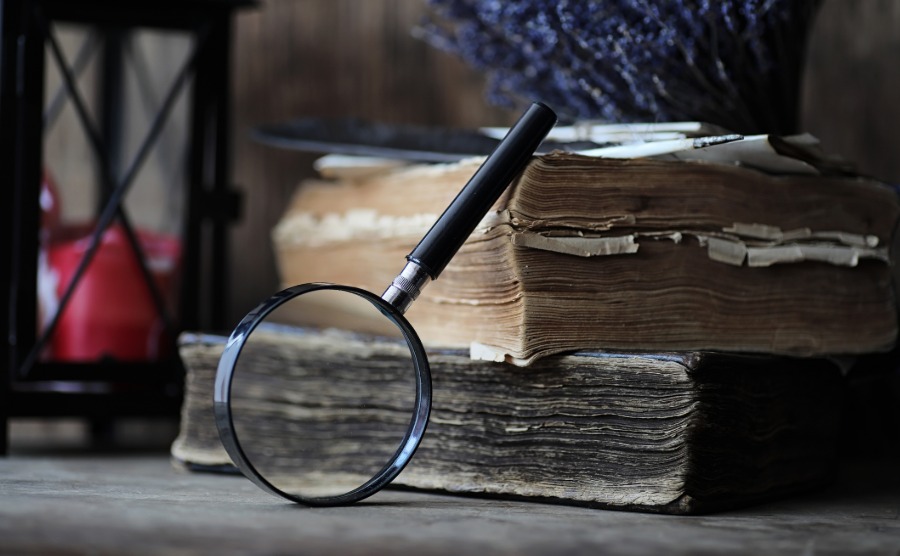Reading for the Love of God — Why Christians Should be Good Readers

Jessica Hooten Wilson, a professor at Pepperdine University, has given Christians a wonderful gift. It’s her new book: Reading for the Love of God: How to Read as a Spiritual Practice.
Wilson is a Christian and a literature scholar at Pepperdine University. She convincingly makes the case that while the Bible is the greatest book of all time, we can become close to Christ by allowing great literature and spiritual writing to form our souls.
The Centrality of the Written Word
Wilson does not have to contort herself to try and make this point. A graceful and easily understood writer, she simply lays out how central the written word is to Christianity itself. “Perhaps it is our digital culture,” she writes, “but we have forgotten our identity as word creatures. God creates the world by word: ‘Let there be light.’ And with a word, God pronounces creation good. He converses with human beings in Genesis through words….When God enters creation in the incarnation, John describes him as the Word that ‘became flesh.’”
There’s more. Paul studies Greek myths, St. Augustine wrote a book on how to read, and monks saved civilization from the barbarians by transcribing manuscripts. Indeed, for centuries it was Christians who were considered people of the word.
How Do You Read?
Wilson compares two different ways of reading — the Thomas Jefferson way and the C.S. Lewis way. Jefferson famously created his own version of the Bible by cutting out everything he didn’t like from the real Bible. This is one way of being a reader — arrogant, “enlightened,” filled with ego and secular will. Then there is C.S. Lewis, who compared reading to traveling to another country and being willing to mingle with the locals. You come home not full of your own subjective prejudices, but a different person: “You come home modified, thinking and feeling as you did not think and feel before. So with the old literature.” Wilson adds this: “If we are poor readers, an encounter with the Word will not do much to make us his people.”
Reading is Transformative
Because so many book stores and so many college literature departments are run by liberals, it’s assumed that any kind of reading transforms the reader into a liberal or a social justice revolutionary. “Banned Books” weeks never talk about the conservative books that don’t get covered in the liberal media or stocked at left-wing bookstores. Yet as Wilson explores so convincingly, reading can not only make you “woke” but bring you into deeper contact with God — which is to be genuinely woke.
I will never forget being 12 years old and reading The Chronicles of Narnia for the first time. It was the middle of the summer, I was in my little bedroom in Maryland. When I got to the final pages of The Last Battle, where the glory of eternal life is revealed after a train accident, I was absolutely frozen in place with unspeakable awe. I cried. I was not ready to fully comprehend the Bible then, but I got Lewis and Tolkien.
Please Support The Stream: Equipping Christians to Think Clearly About the Political, Economic, and Moral Issues of Our Day.
As I got older Lewis and Tolkien led to science fiction and Shakespeare, then Joseph Conrad and Diary of a Country Priest, Dostoyevsky and Walker Percy. Wilson makes the point that when Jesus came it changed everything in the universe — including how we read. Reading became different after the incarnation. We view characters as in a struggle to do the right thing and come into sync with the truth of the Lord, even in books that might seem completely secular.
One of the most powerful novels I’ve recently read is All Day is a Long Time by David Sanchez. It tells the story of a young man named David who suffers sexual abuse and drug addiction, but the one thing that keeps him connected to some kind of life is literature: Dante, Moby Dick, William Faulkner. Toward the end of the novel, he has a realization: “If my life is full of days, then what are my days full of if not life?” This line could have come from a Sunday sermon. David is searching for Jesus and books may help him finally come home.
There is also a place for the crime fiction I love, as it often depicts the bad ending that comes to people who make deals with the devil. One of my favorite novels of all time is Jim Thompson’s Savage Night, which dramatizes the slow descent into hell of a hitman who refuses to turn away from evil.
The entire literary scene of the last hundred years has become the turf of secularists and atheists pushing politics and promoting all kinds of weird theories about “interpreting the text.” This usually means calling out the author as a dead white misogynistic male. They are Jefferson readers, not Lewis readers. Wilson’s beautiful book is a fantastic corrective to that. As she quotes Jesus saying in the Bible, “How do you read it?”
Mark Judge is a writer and filmmaker in Washington, D.C. His new book is The Devil’s Triangle: Mark Judge vs the New American Stasi.







